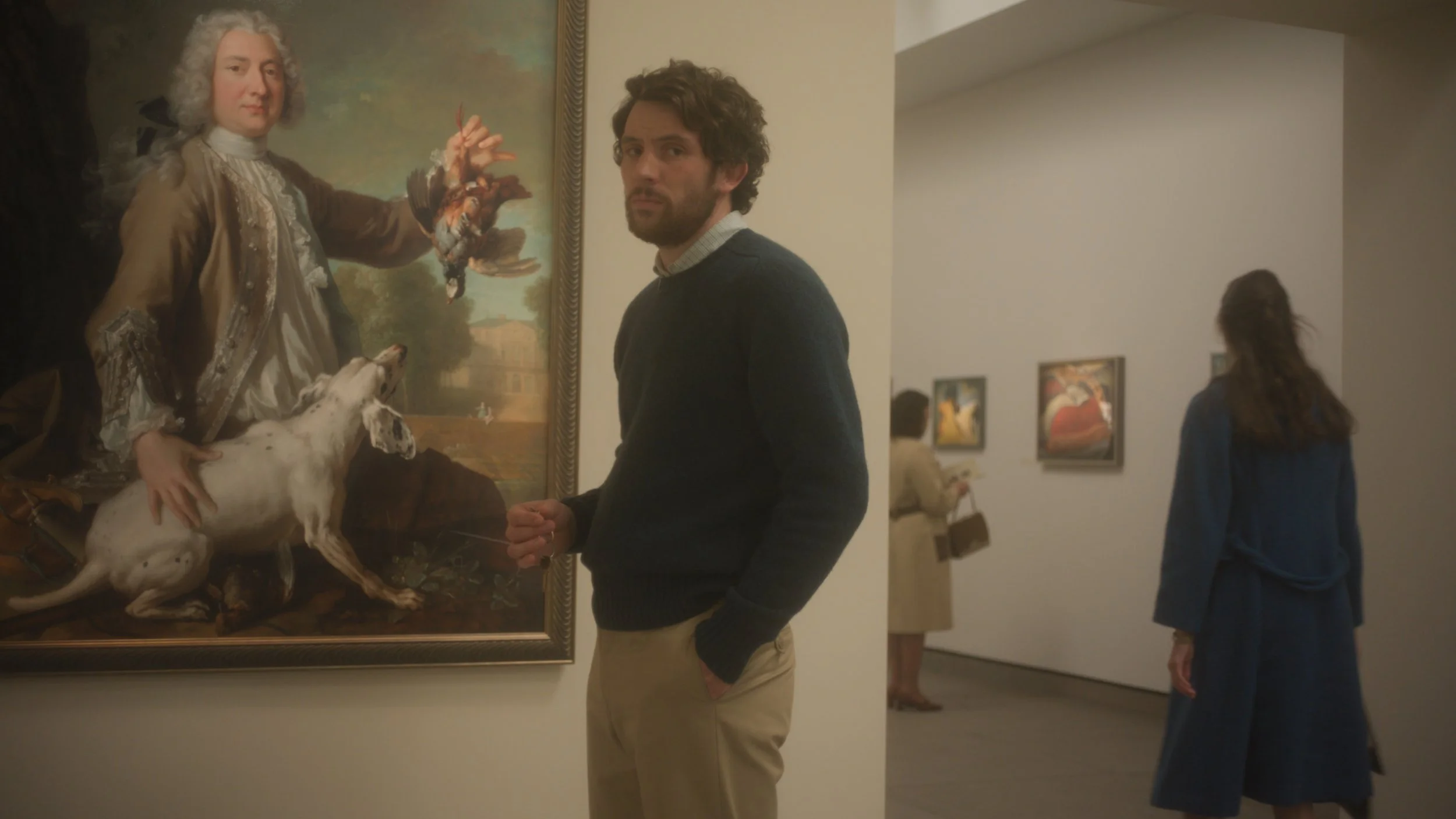The Mastermind: Kelly Reichardt’s 70s-Era Heist Drama a Study in Subtle Storytelling
By Karen Gordon
Rating: B+
In the first couple of minutes of The Mastermind, I took my glasses off and cleaned them, assuming the slightly grainy, soft-focus image was the result of my lenses being smudgy. It turns out my lenses were fine.
The opening scene of writer-director Kelly Reichardt’s film is deliberately shot to look and feel like something made in the early seventies. You might, if you were alive at the time, also pick a few other clues to indicate where we are in time such as random people with era-specific clothes and hairstyles. Later, you might notice a parking sticker that reads 1970.
This isn’t meant to be a tribute to 70s-era TV or movies. It’s more about Reichardt’s storytelling style, meant to orient us to the timeframe of the action.
The Mastermind is based on an actual art heist in 1972, when four paintings by Gauguin, Picasso, and Rembrandt were stolen in a daylight robbery from the Worcester Art Museum in Massachusetts. The mastermind was an amateur thief named Florian “Al” Monday.
Here, Josh O’Connor plays James Blaine Mooney, a father of two preadolescent boys, married to the quiet, intense Terri (Alana Haim). They live in a cramped modest bungalow in Framingham, Massachusetts with his parents Bill (Bill Camp) and Sarah (Hope Davis).
James is out of work. It seems that by profession he’s a builder and a contractor, trying to get his business going. But when asked about work by his dad, Mooney is evasive and shifty.
The family takes regular trips to the Framingham Museum of Art, where Mooney’s parents are prominent members. Those visits are his excuse to case the place. He tests security out by stealing little bits from the collection, a chess piece that he slips into the case with his glasses.
Mooney has a plan. He has picked four modernist paintings by American abstract painter Arthur Dove to steal and planned a daylight robbery. He hires a trio of men to do the deed for him while he waits at a different location. But, on the day of, his getaway driver bails so he’s forced at the last minute to take on that role.
The two men go in, find the paintings, put nylon stockings on their heads, and get to work. While they’re taking the paintings, a schoolgirl wanders in and catches them. One of the robbers pulls a gun on her. Who these two are and just how Mooney came to hire them is a mystery, but for different reasons they will be Mooney’s undoing.
Who is Mooney? And why did he decide to steal and then attempt to sell paintings? That’s never made clear. All we have is the shiftiness of his reactions as he talks to people as clues to what might be driving him. And that is never defined. Is it laziness? Hubris? Something else?
The Mastermind is peak Reichardt, a masterclass of a certain kind of filmmaking that leaves most of the what-and-why questions aside, refusing to give us a backstory or to foreshadow. It asks us to stay in the now and observe.
In the absence of exposition — or even more than a fleeting sense of why Mooney felt he wanted to risk everything pulling off such a crime — Reinhardt keeps the film spare and quiet.
Increasingly, Mooney’s familiar world is disappearing. From the beginning of the film, there has been a feeling of claustrophobia about him. If —and I do mean if because we don’t really know — Mooney felt stilted, trapped and small in his normal home life, his life on the run isn’t much better.
In the wider world the walls of reality are closing in on him. Reichardt, with the lightest hand possible, makes the reality of his choices, his ethics, and who he is (or isn’t) at his core so visceral that it’s enough to make you squirm in your seat.
And her cast picks up their work beautifully. Haim’s Terri just barely holds back the rage that’s simmering inside of her at what her husband has done to the family. O’Connor’s character, who has never seemed to completely have a handle on himself, retreats into a cringey desperation, losing sense of where he’s going or what he really wants.
All of this sounds dramatic, and for sure it is. But it’s also light with a surprising amount of wry, offhand humour.
It takes incredible talent to make something this spare work. The Mastermind is the kind of high-wire act that only someone as gifted as Reichardt could pull off. She is one of the best American indie filmmakers even as her style requires of audiences both patience and a willingness to go with something less conventionally structured.
The Mastermind. Written and directed by Kelly Reichardt. Starring Josh O’Connor, Alana Haim, Bill Camp, and Hope Davis. In theatres October 24.


